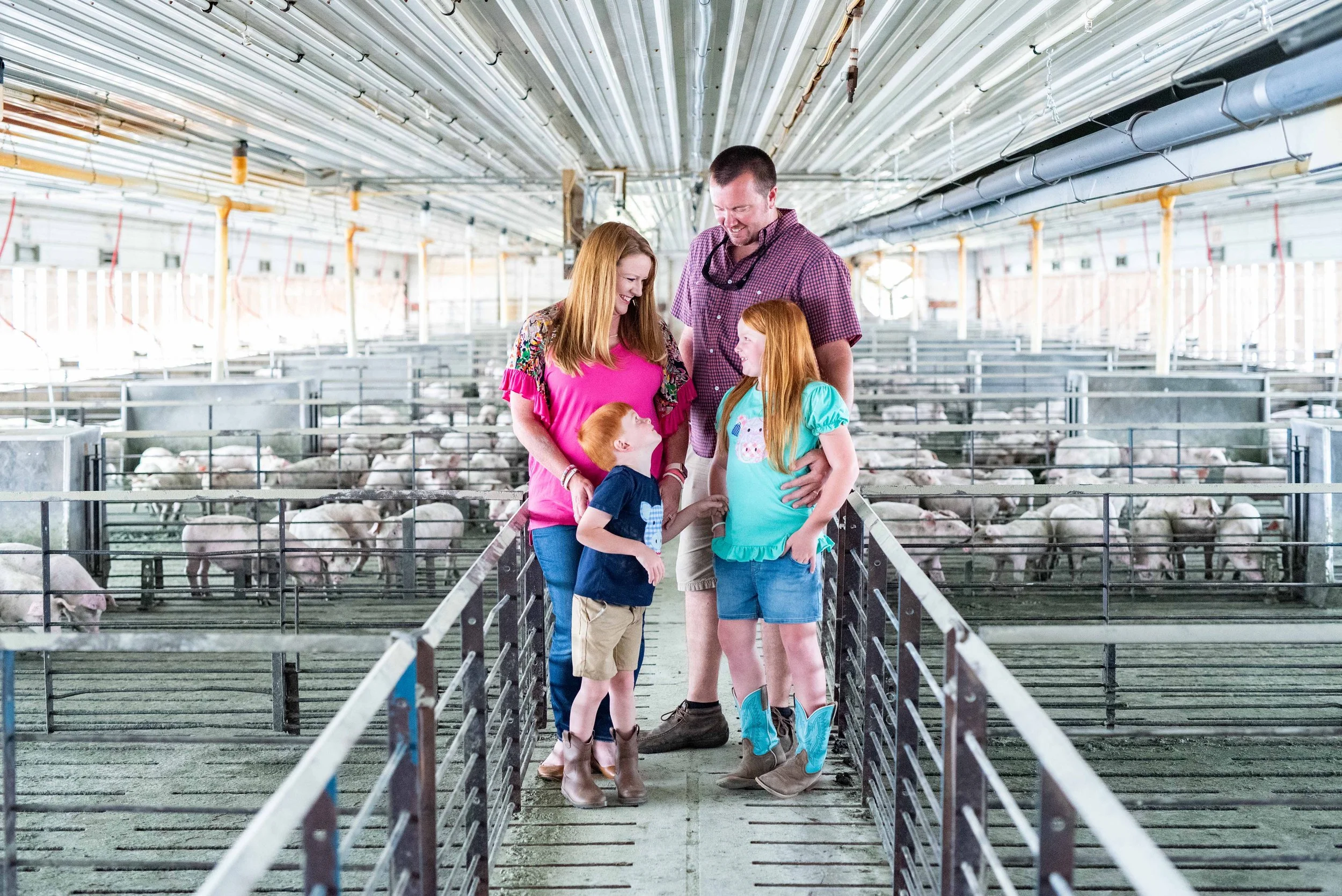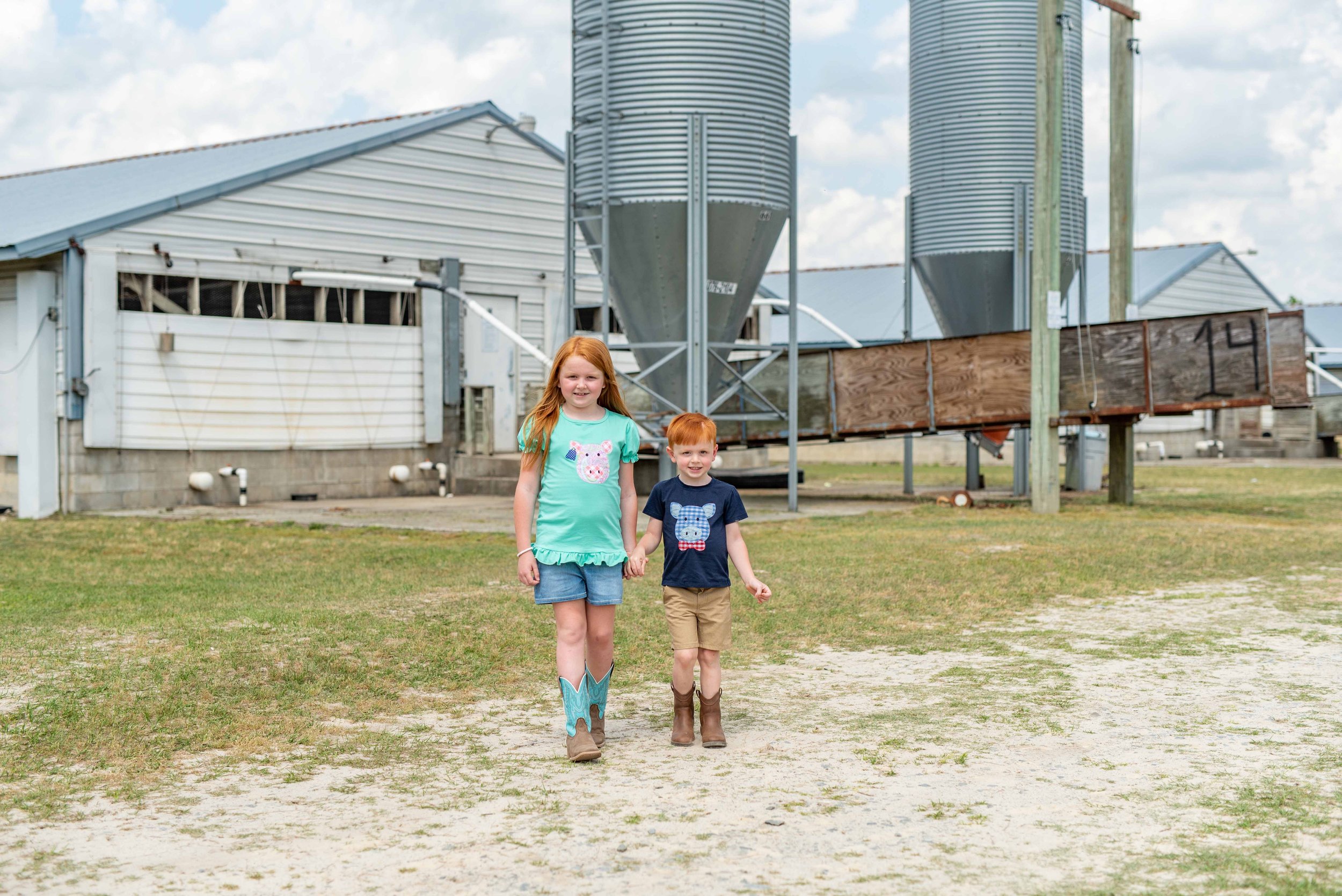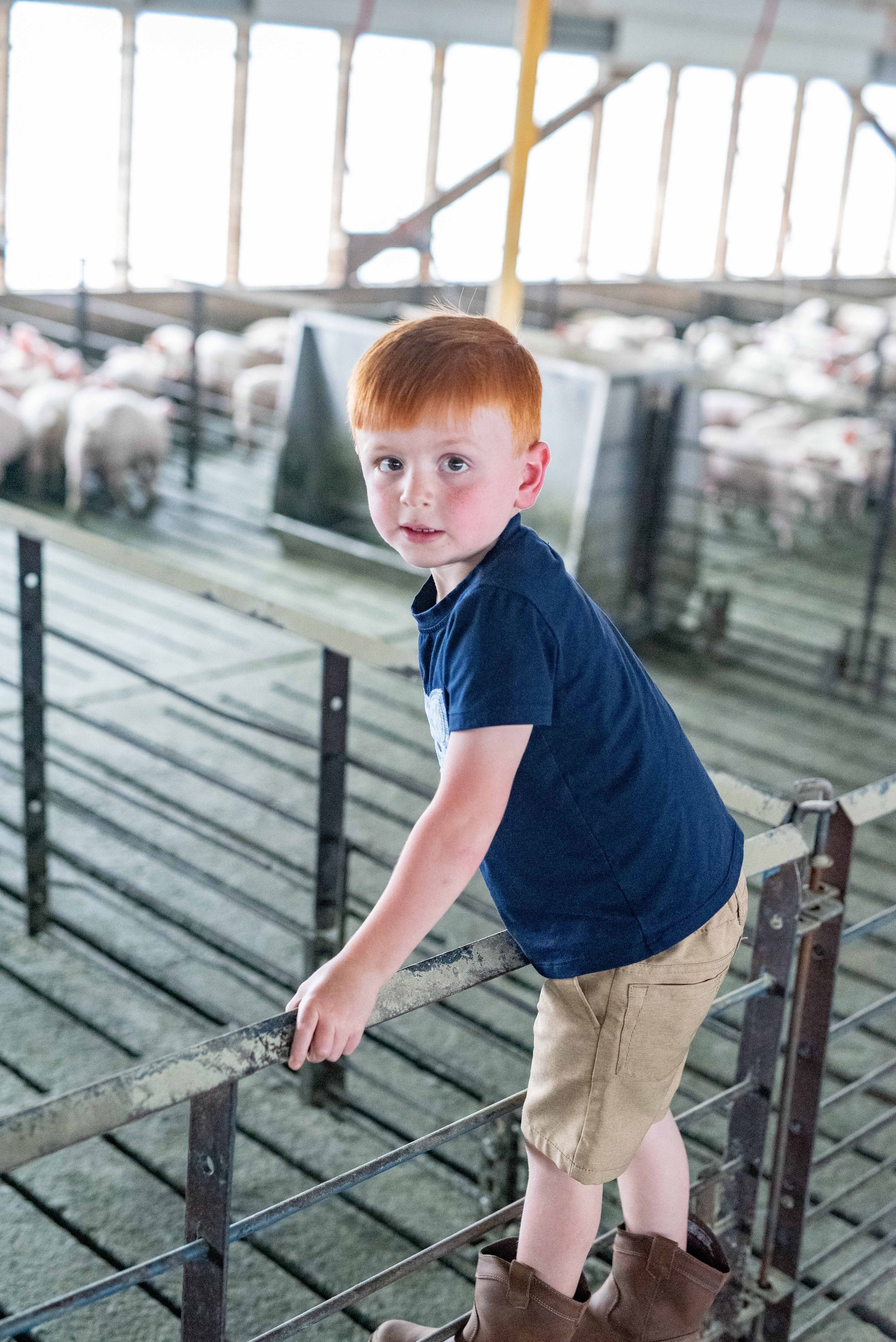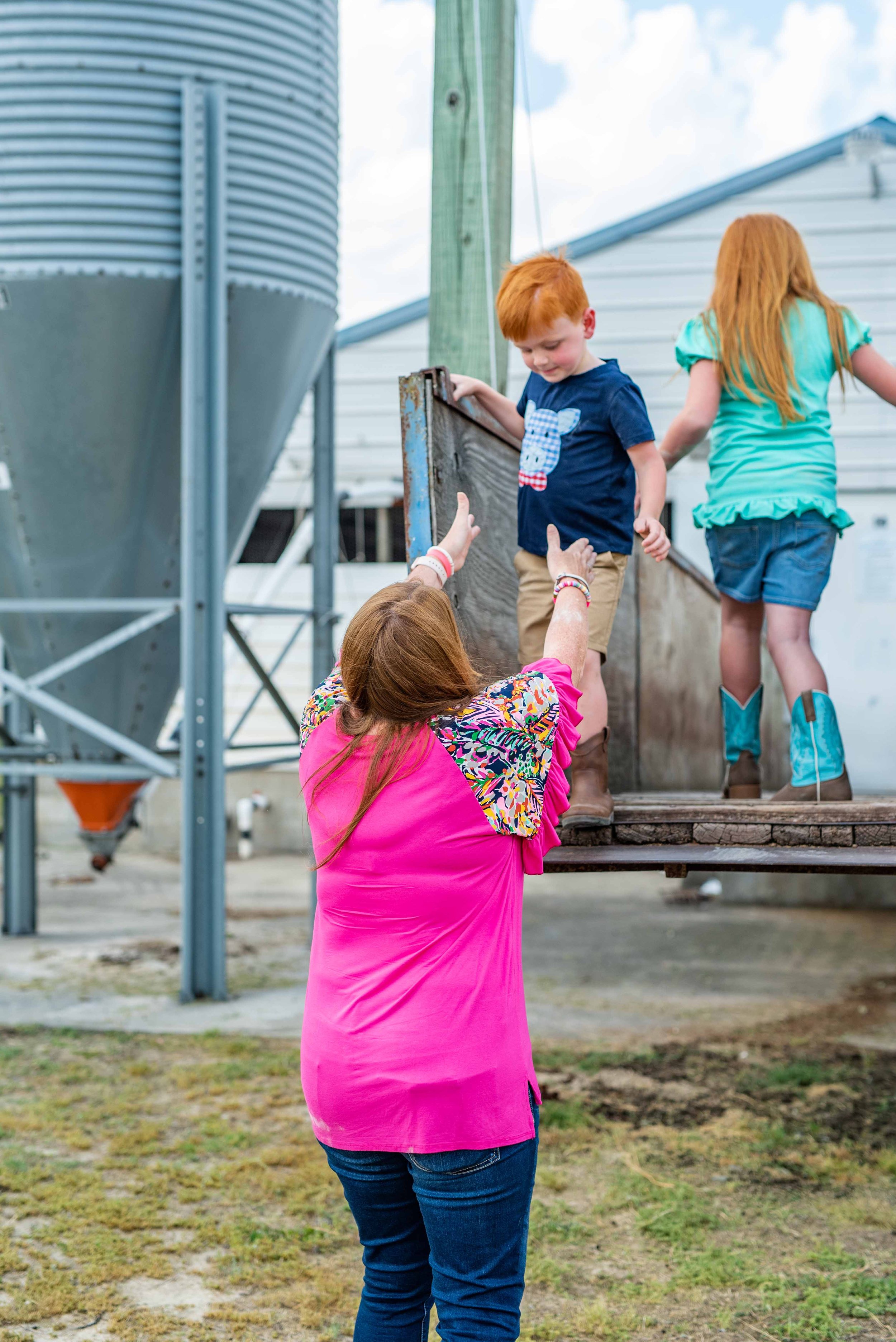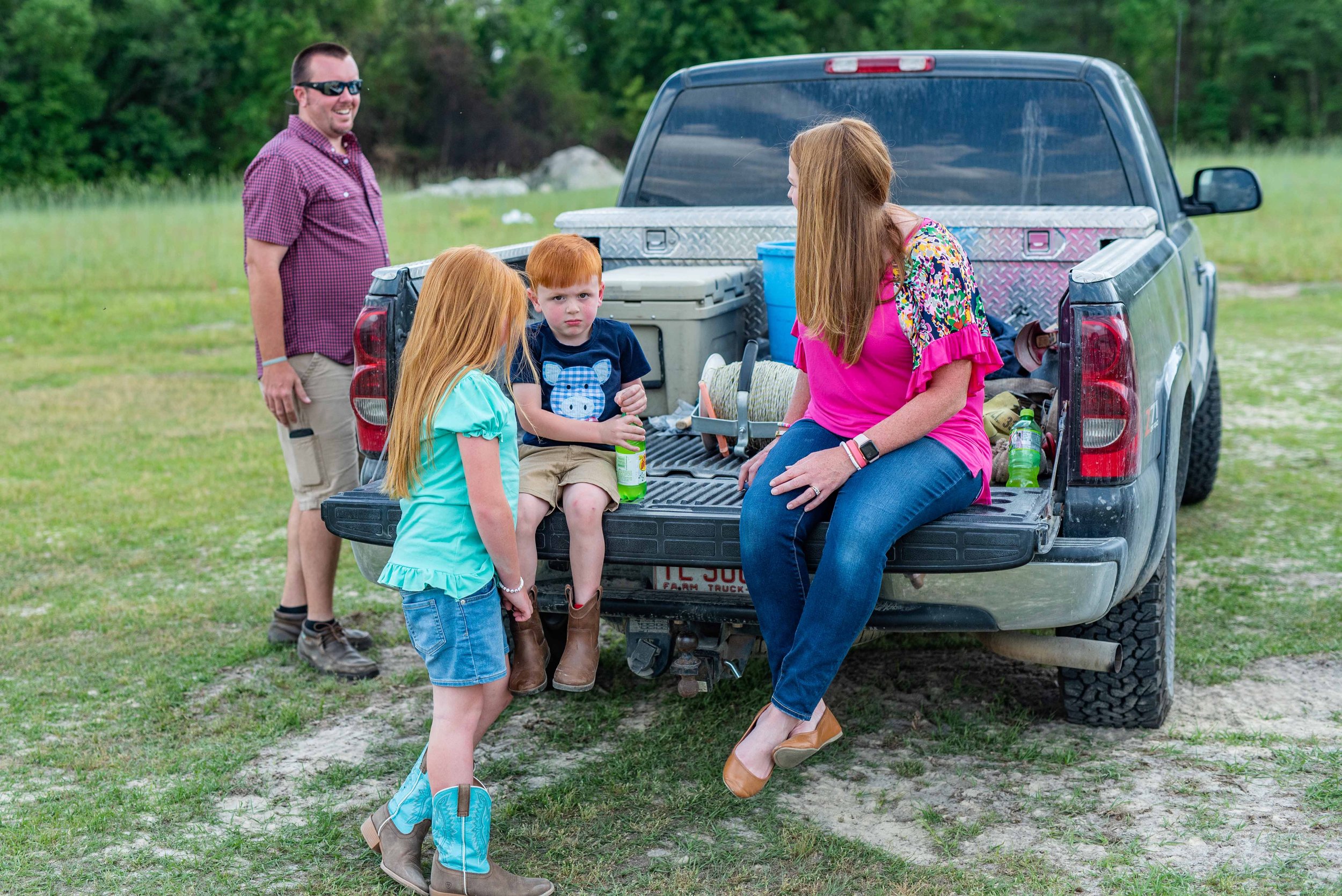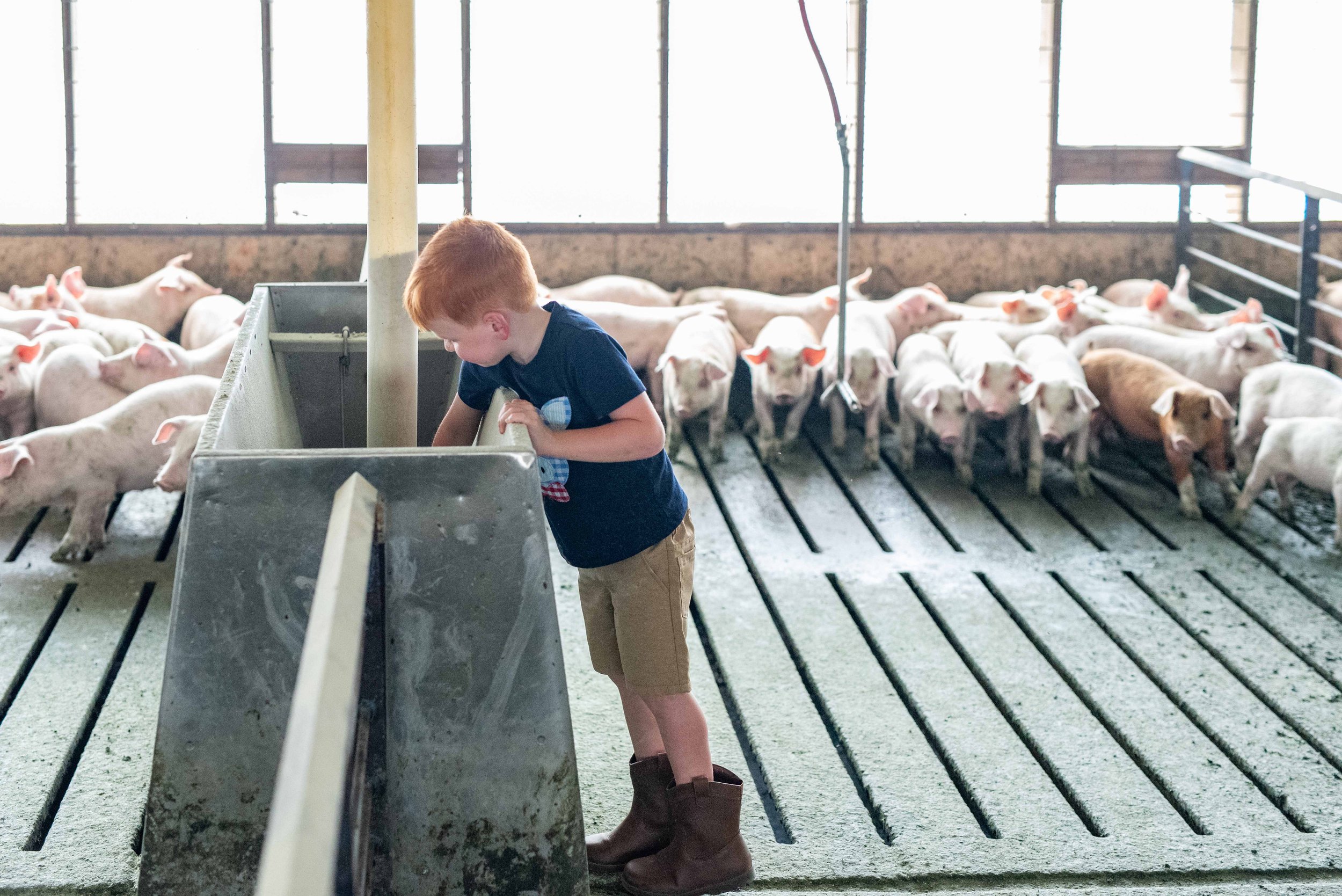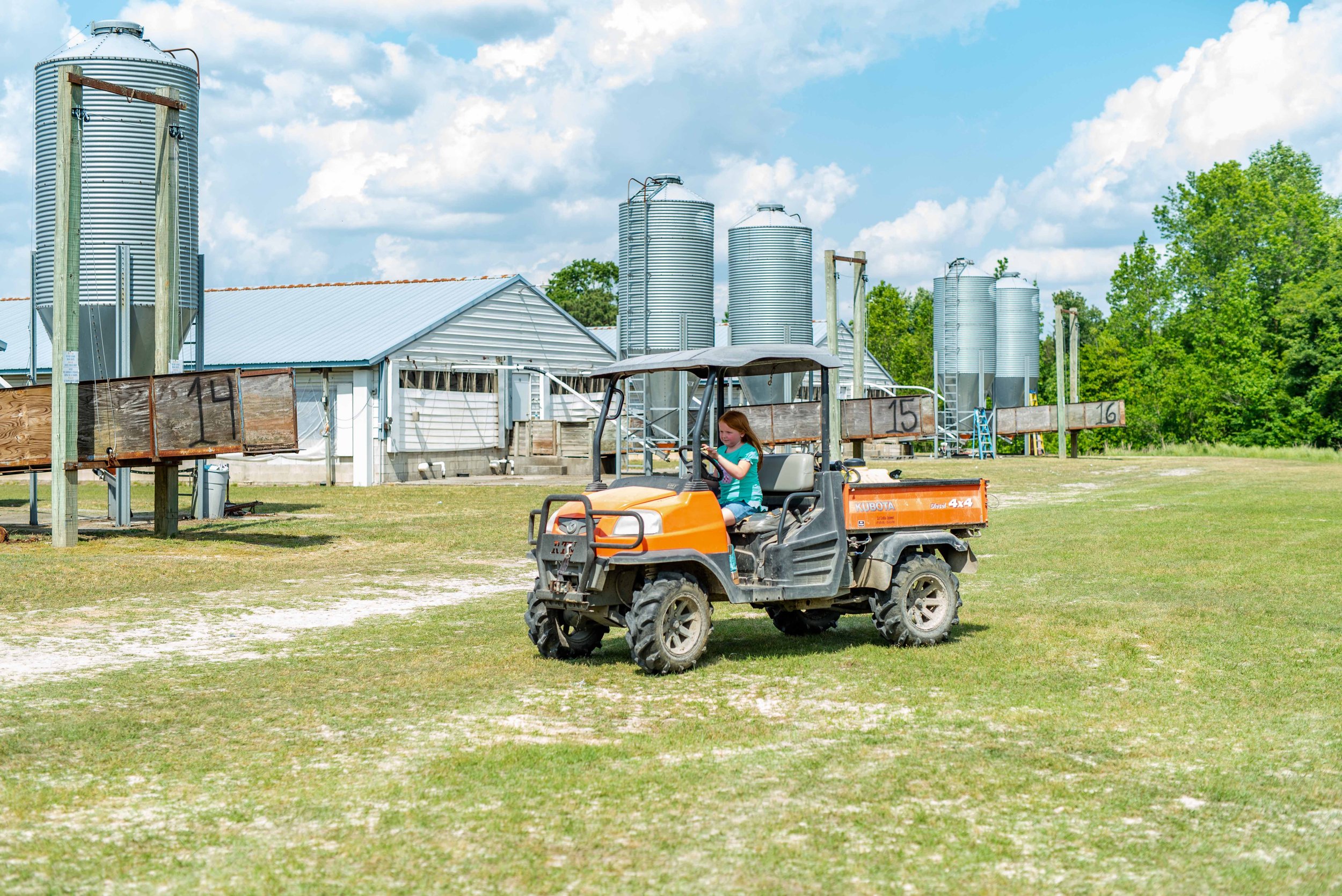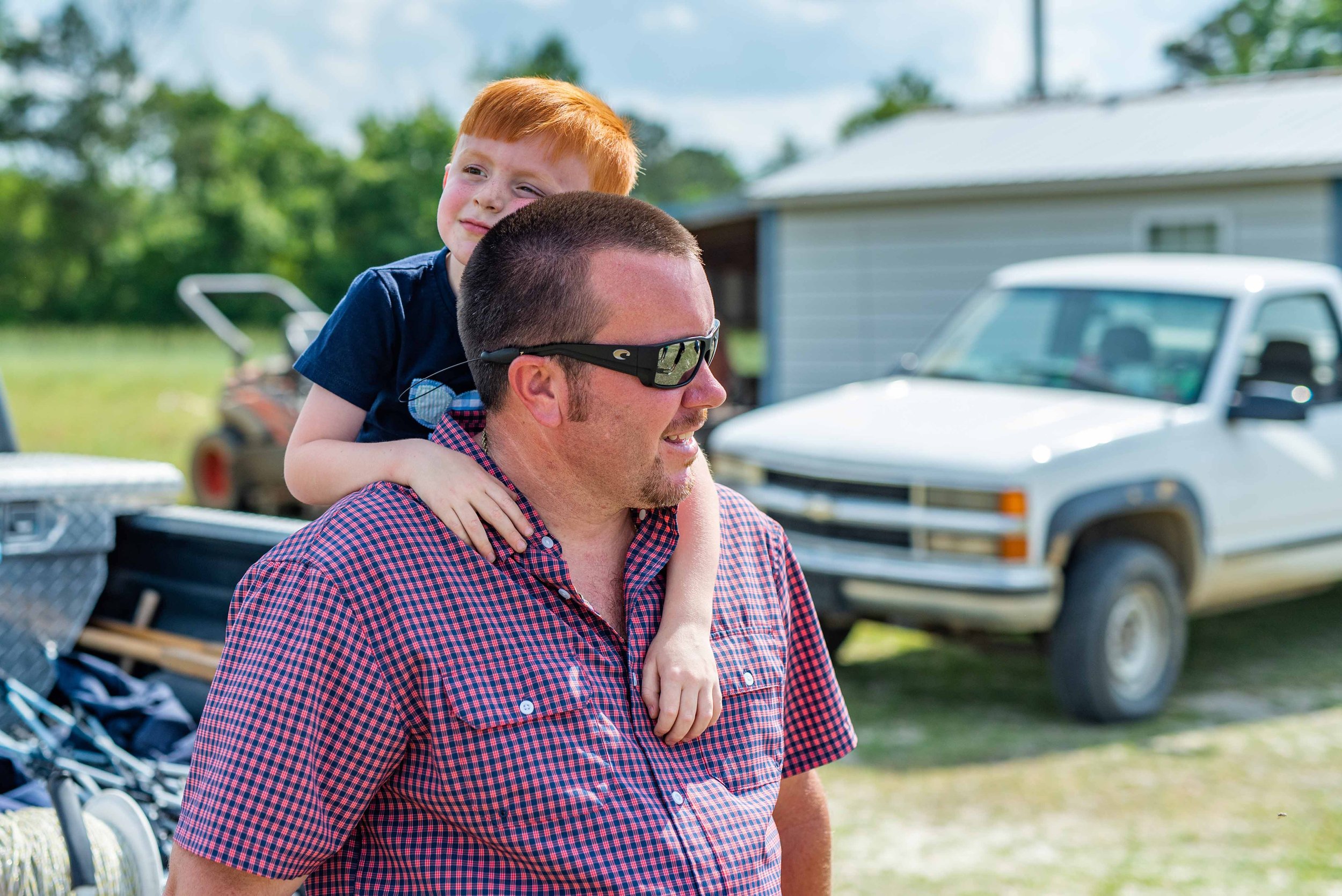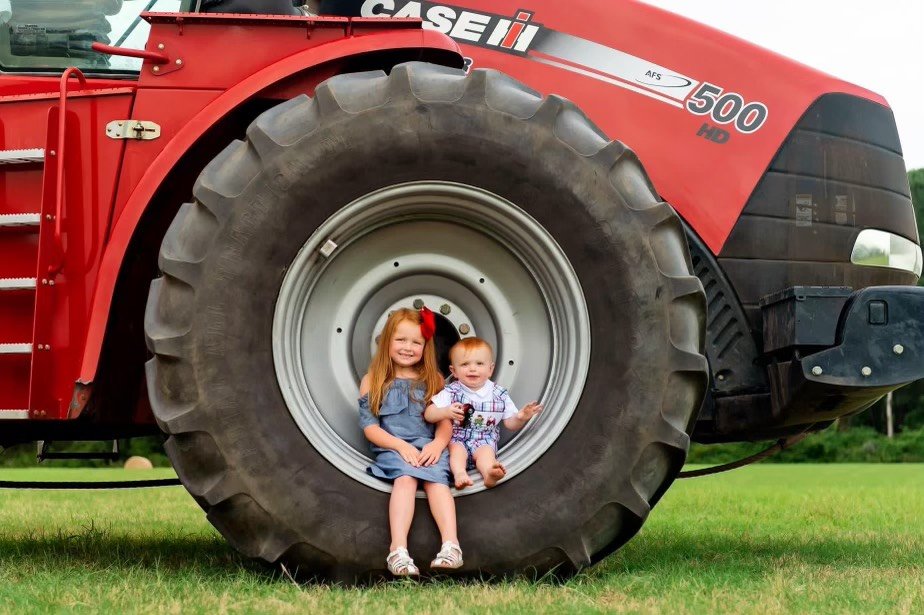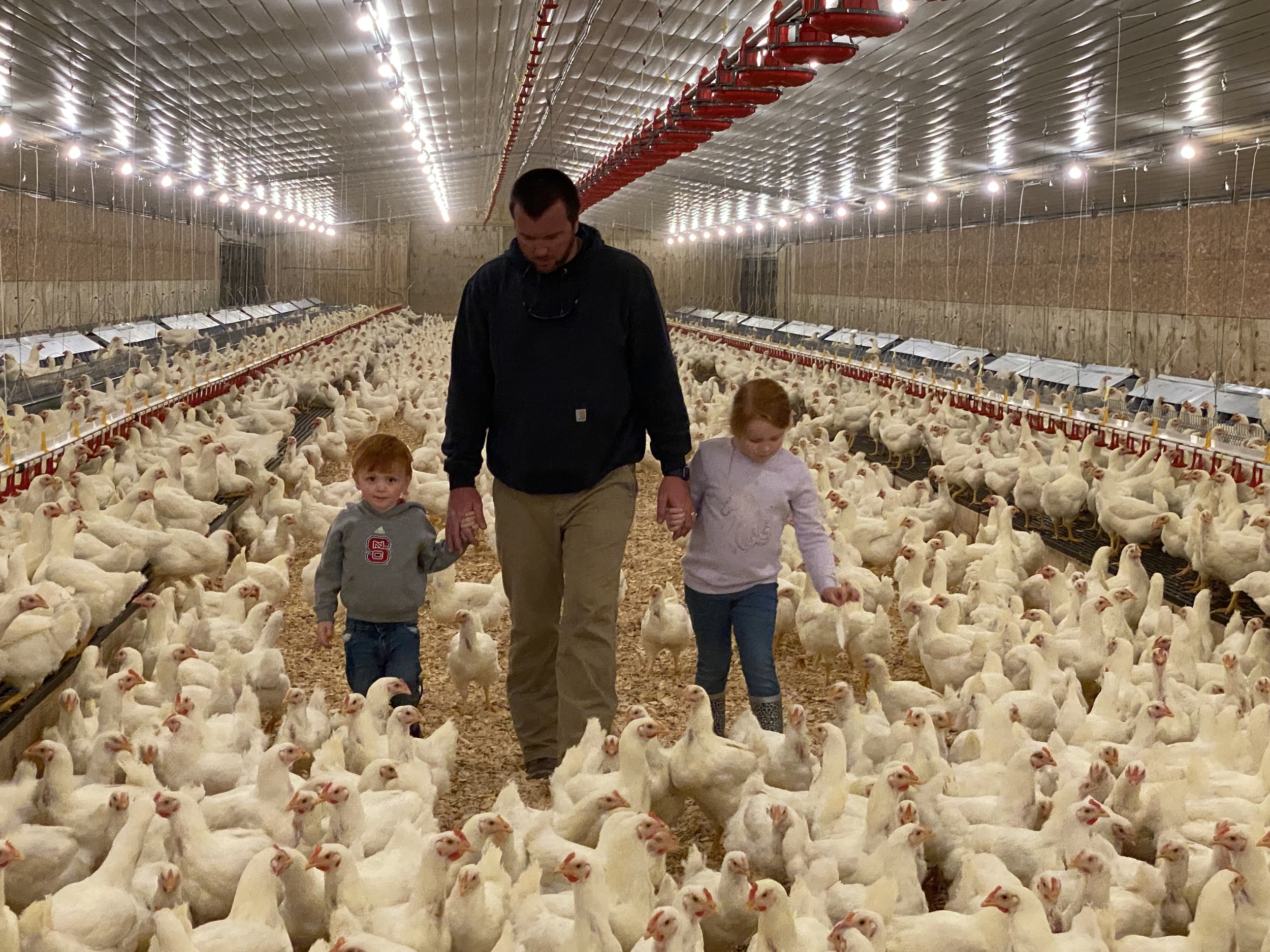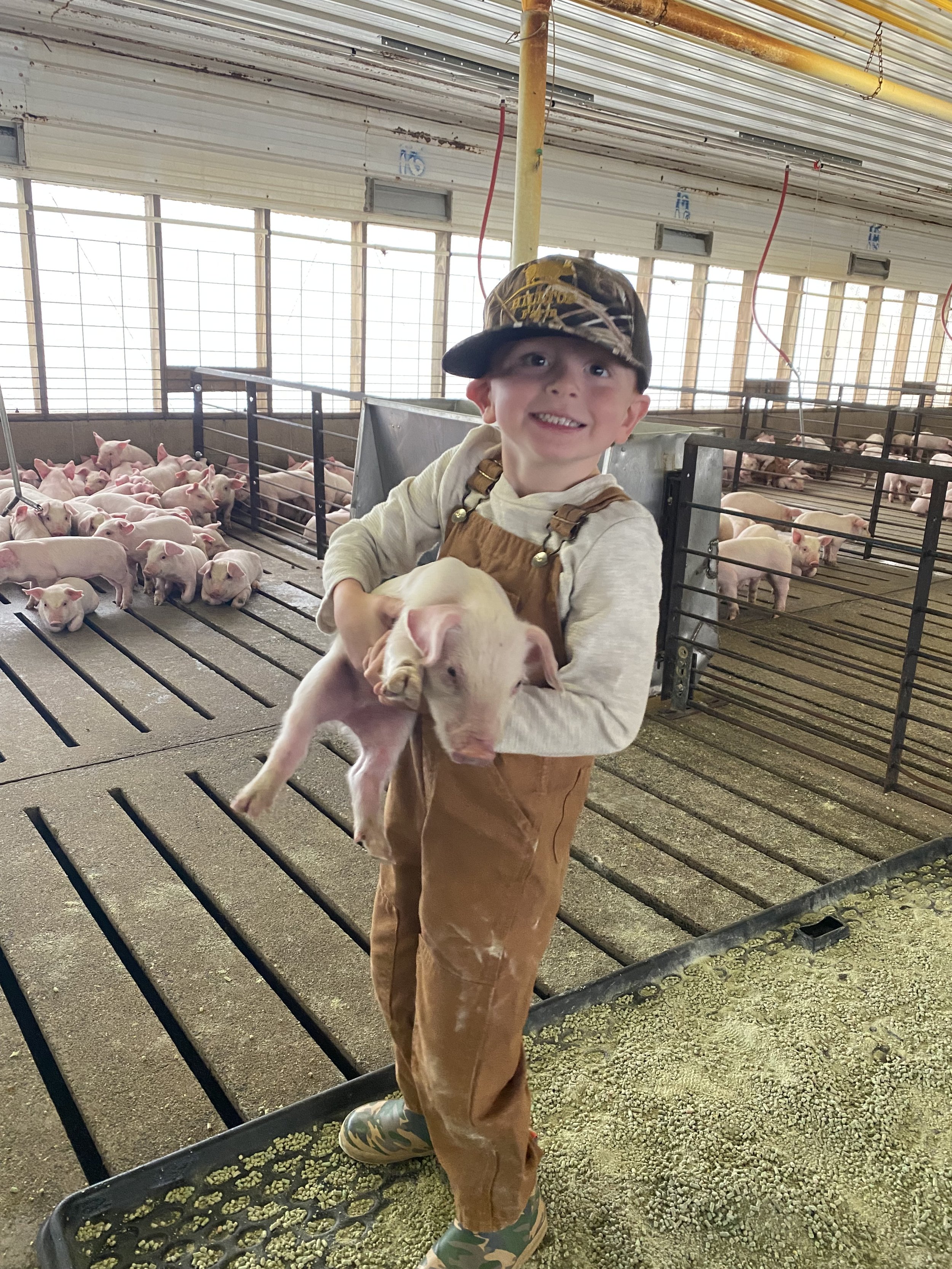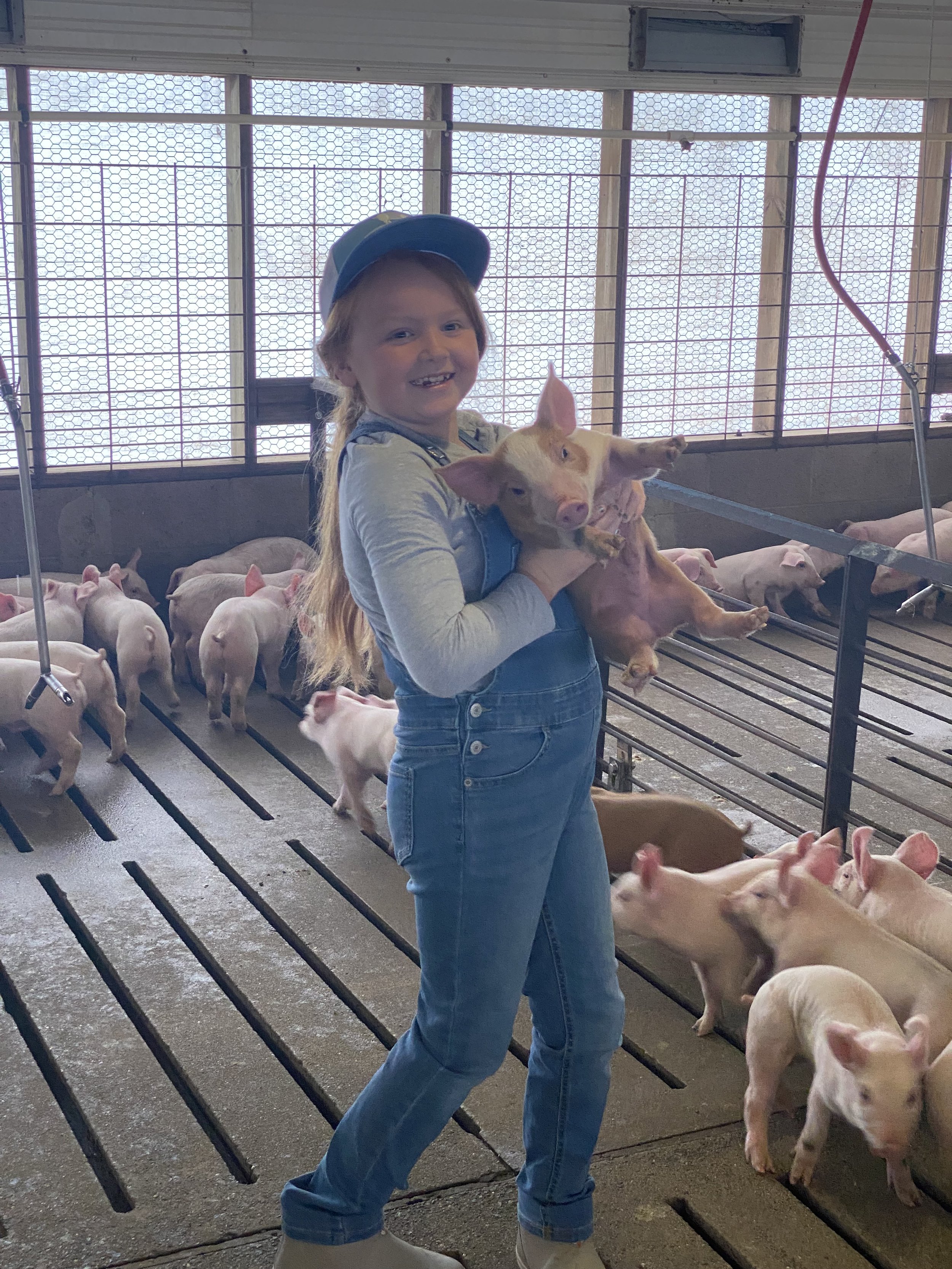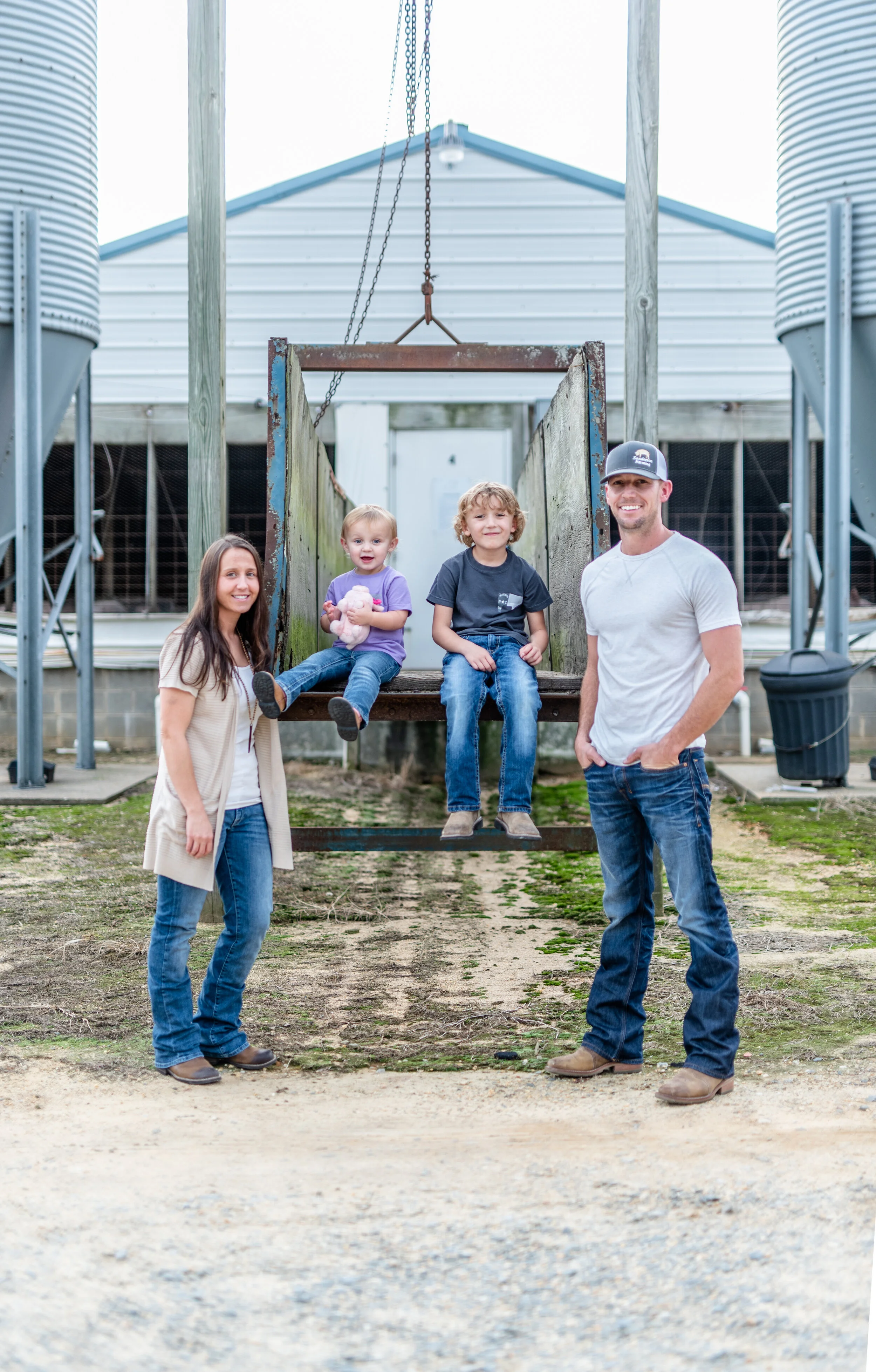Farmkeepers Blog
The Farmkeepers is the official blog of NC Farm Families. It is here that words will flow, our voice will be heard, a stand will be made, and the farm families of North Carolina will be protected. In these posts, we'll set the record straight. You'll see the faces of the families who feed us. Here, you'll receive all the updates and news. It is here that we will fight for farmers and be the keepers of the farm in NC. We hope you'll join us. Follow along on social media and by joining our email list.
Heaven on the Farm: The Mewborn Family
“The family farm—is more than a business—the family farm is a lifestyle—it is an ideal worth preserving.”
Robin and Wesley Mewborn met in middle school in Duplin County. When they first started dating, Wesley knew nothing about farming; however, Robin had grown up on a multi-generational farm. In 2010, the couple got married. Together, they dreamed of raising their own family on the farm. That dream became a reality in 2014 when they placed their first set of chickens, growing for Case Farms. A few years later, they would add a hog farm and grow for Smithfield.
Although their dream came true, it wasn’t easy. As a first-generation farmer, you start with nothing. When Wesley would ask how he could get started, he was met with statements like, “You don’t. You can’t.” But seven years later, the Mewborns have made it work.
“It just makes me proud to be his wife,” said Robin. “To be that first generation for our children, to grow into that knowing how much work and dedication he’s put into this. His dedication has created this.”
Wesley credits a lot of the opportunity to farm to Cape Fear Farm Credit. “If it wasn’t for Farm Credit we wouldn’t have what we have. They have bent over backwards, so in return they’ve enabled those two [their kids] to have something one day,” Wesley said with emotion.
Robin and Wesley with Shannon Bell and Carrie Cumbo from CFFC.
Farm Credit is more than a lender for rural and agricultural communities. They are also a resource. Wesley says that sometimes, before talking to Robin, he’ll call the folks at Farm Credit to ask if something is a smart move or will something work? “When they say yes, I go home and say, ‘hey, Robin guess what?’” said Wesley.
Farm Credit invests in farmers and rural communities because they recognize just how much farmers bring to the table—literally. Thanks to them, families like the Mewborns have the chance to chase their dreams and become first-generation farmers.
“I’m excited for us to be here and farming because that’s what I’ve always wanted to do-- that and raise our kids here,” Robin said. “I love the freedom of it. They can come [to the farm] and learn.”
Being able to do that is special for Robin, as she has fond memories of being picked up from school by her mom to go spend time on the farm with her dad. Now, she gets to do the same thing with her children.
Robin doesn’t just want her own children to learn about farming. She extends those lessons to her own classroom. Robin has taught in Duplin County for 16 years at the same elementary school she attended as a girl. Through Farm Bureau’s Ag in the Classroom, Robin ensures her students are learning all about agriculture through activities like hatching chicks and raised bed gardens. One thing she hopes that her students and her own children realize is that agriculture is a vast field.
“There’s more out there than just farming—welders, electricians, truck drivers—those jobs are available. They can stay in Duplin County and do those jobs,” Robin shared.
Farming and agriculture also offer opportunities for girls too. Robin and Wesley want their daughter Macy (8) to know that “it’s not just a man’s job. There’s something for her here too.” Macy’s favorite day on the farm is when they get new baby pigs or chicks. Meanwhile, her brother, Case (4) loves all things tractor. He can tell you names, models, and colors. He also takes farm work seriously.
“When you pick him up from school, it’s ‘my daddy needs me to check the chicken alarm, or my daddy needs me to go to the hog houses and pump.’ He comes ups with it all on his own,” said Wesley.
In many ways Wesley and Robin farm for their children—all three of them, although you will notice only two of them are with them today. Robin and Wesley’s firstborn, Layla was diagnosed with brain cancer when she was only 3 months old. The young family went to Duke every week for treatments. At the time, they were just starting to build their chicken houses, so were not farming yet. Robin was 7 months pregnant with Macy, and Wesley had been laid off his job.In October of 2014, their first set of chickens arrived. For the Mewborns, farming was a blessing in so many ways. Not only did it provide a job for Wesley, but it allowed for more flexibility as they continued traveling with Layla for care and treatment.
Layla passed away on her fourth birthday in 2016 at Duke. She was in palliative care for two weeks prior, and Wesley was able to be there every day, something that he might not have been able to do with another job.
Today, they continue to remember Layla in all they do, including farming. Their smaller hog farm is named LMC after their three children.
Robin, Macy, Wesley, and Layla
Layla and Wesley
“In our farming day to day, we remember Layla. She is also our child. Honoring her in just naming our farm and in the day to day is a huge part of our story. She is a part of this even though she is not here, and it gives us that drive,” shared Robin.
They say when you see a cardinal, it is a visitor from heaven; every time they see a cardinal, they remember Layla. Frequently, the family will see red birds at the farm. For some, the farm is a slice of heaven on Earth, and for the Mewborns, that is especially true.
Heart of the Matter: What is a Family Farm?
Recently, there have been discussions about what a family farm is. The answer seems simple: a farm run by a family. However, because farms don’t always look like they did 50 years ago, there has been some debate and confusion over what a family farm truly is.
We thought it important to address this topic. After all, our name is NC Farm Families. Shouldn’t we be able to provide clarity on who we represent? So here goes:
A family farm is one that has a family behind it.
It doesn’t matter how large the farm is.
It doesn’t matter if the farm is multi-generational or new.
It doesn’t matter if the family extends to farm employees.
It doesn’t matter if the family chose to contract with an integrator or are independently operated.
It doesn’t matter if there isn’t a red barn.
It doesn’t matter how many or what size the tractor is.
It doesn’t matter.
We do not constrain the term family farm to a certain size or type or the color of their barn. None of that matters.
What matters is that at the heart of family farms is a passion for the vocation, a love for family, and the fortitude to do hard work.
So, when we say that 96% of farms in the USA are family owned and operated, this is what we mean. They’re men and women raising families and feeding the world. They come in all shapes and sizes. Whether they have 10 acres or 1,000 or raise pigs indoors or on the ground, these things don’t define a family farm, their heart does.
Kids Target of Anti-Hog Farm Messages
The billboards may be gone, and the lawsuits settled, but the fight for North Carolina pig farmers and our farming communities continues. Attacks continue, and now they are targeting your children.
It’s in college lectures, high school & elementary classrooms, and now even on major programming like Nickelodeon. As a part of an Earth Day segment, Nickelodeon highlighted the “environmental racism” and “pollution” that North Carolina hog farmers are inflicting. The network’s programming is primarily aimed at children 2-17, while some of its programs target the entire family.
When it came to their segment on the atrocities of NC pig farms, we weren’t surprised to see names like Rick Dove, Waterkeepers Alliance, and Cape Fear River Watch in the credits.
We say all this to bring awareness. Anti-agriculture activists are going beyond billboards, legislators, and lawsuits. They are targeting your kids.
As Parents, teachers and community members, we need to stay vigilant of the facts or “lack of facts” that are being fed to our children about agriculture.
The farm should not be portrayed as a place of pollution and mean-spirited, careless farmers. It should be highlighted as a place of innovation, career opportunities, and fellow families. Those who get to grow up on the farm, know just how many important lessons the farm can provide. That’s the message that should be shared to all kids—farms are good and important. They aren’t inherently bad.
We are not just fighting misconceptions of where food comes from and what a farmer looks like. We are fighting against misconceptions about the very character and value of farms and farmers.
The youth of today hold the future of tomorrow. What will tomorrow look like for our farmers and our communities? Will the future be a generation who has been taught that farmers are a danger to our health and environment, or will it be a generation who stands up and preserves farms?
We’ve seen what happens when there is a disconnect between farmers and the public. Activists want to make that disconnect even greater by targeting the next generation of leaders and consumers.
Stay vigilant, friends. The billboards may have faded, but the attacks haven’t. They’ve just switched gears. Keep sharing the true story of farmers, especially to our young people.
Reliable Sources for Youth & Parents/Teachers:
Visiting a Pig Farm with Chad Herring: https://youtu.be/LSF9hE6S3Zc
NC Farm Bureau Ag in the Classroom: https://www.ncfb.org/ag-in-the-classroom/
USDA Agriculture Library: https://www.nal.usda.gov/topics/educational-resources-children-parents-and-teachers
National Ag Day: https://www.agday.org/helpful-websites


